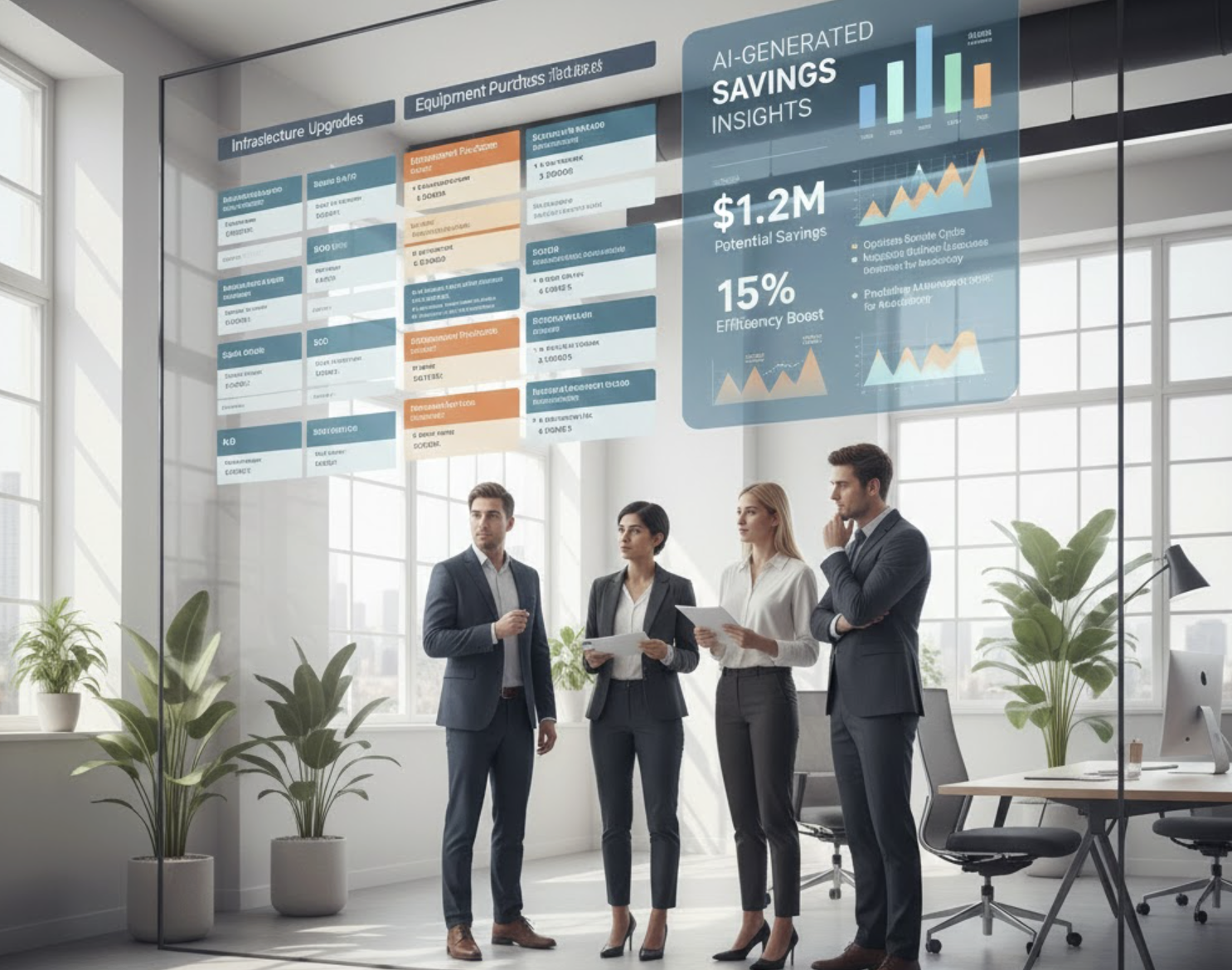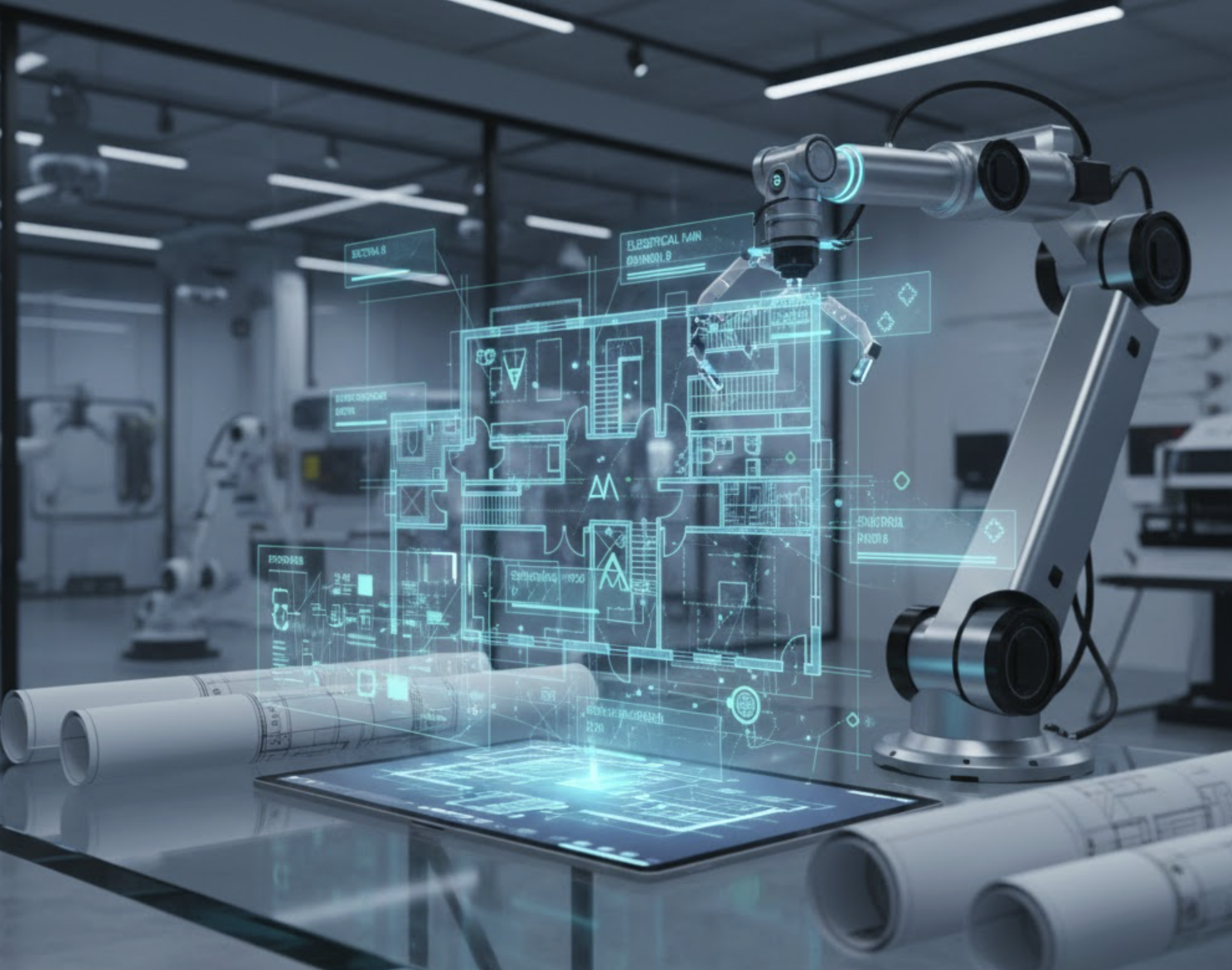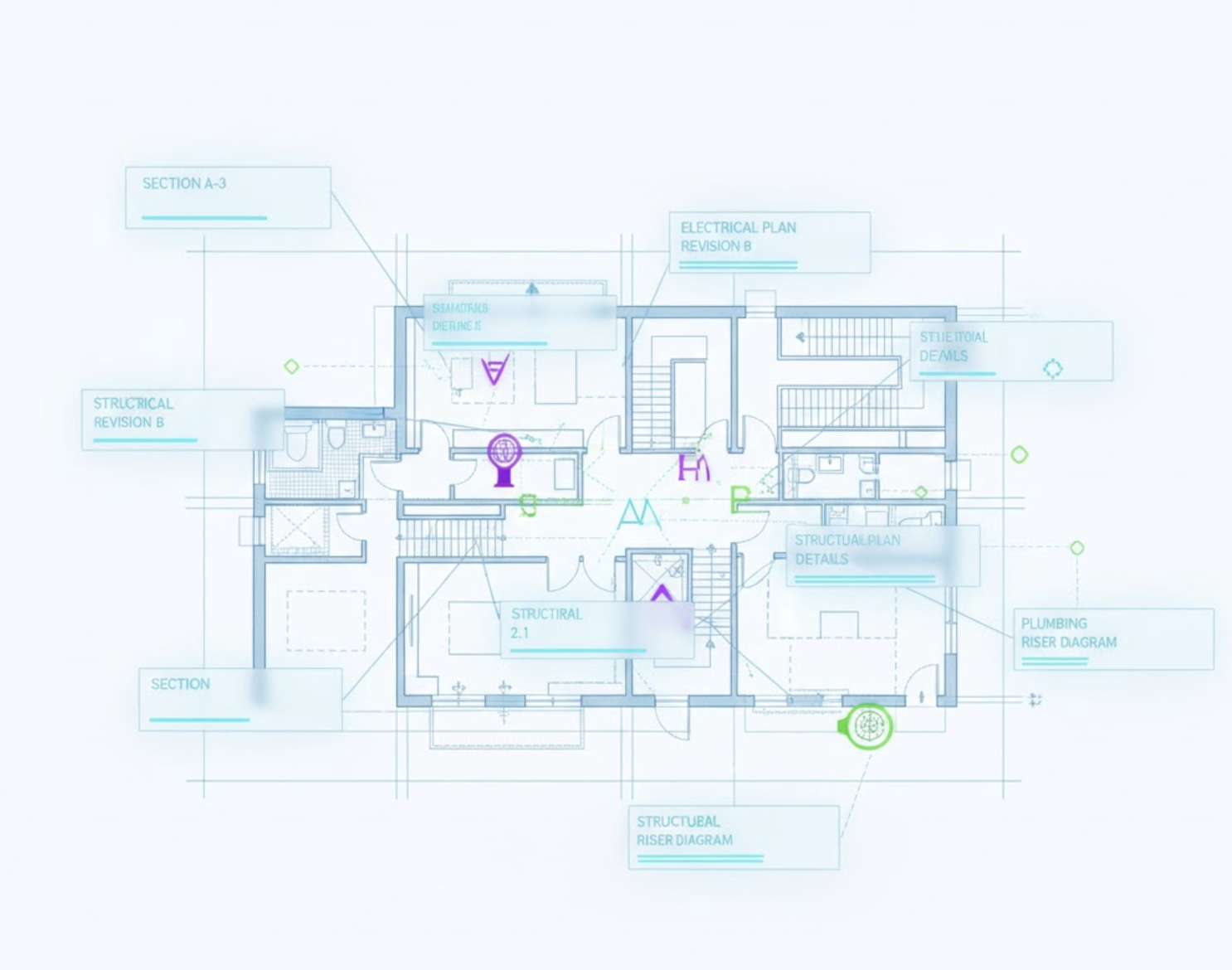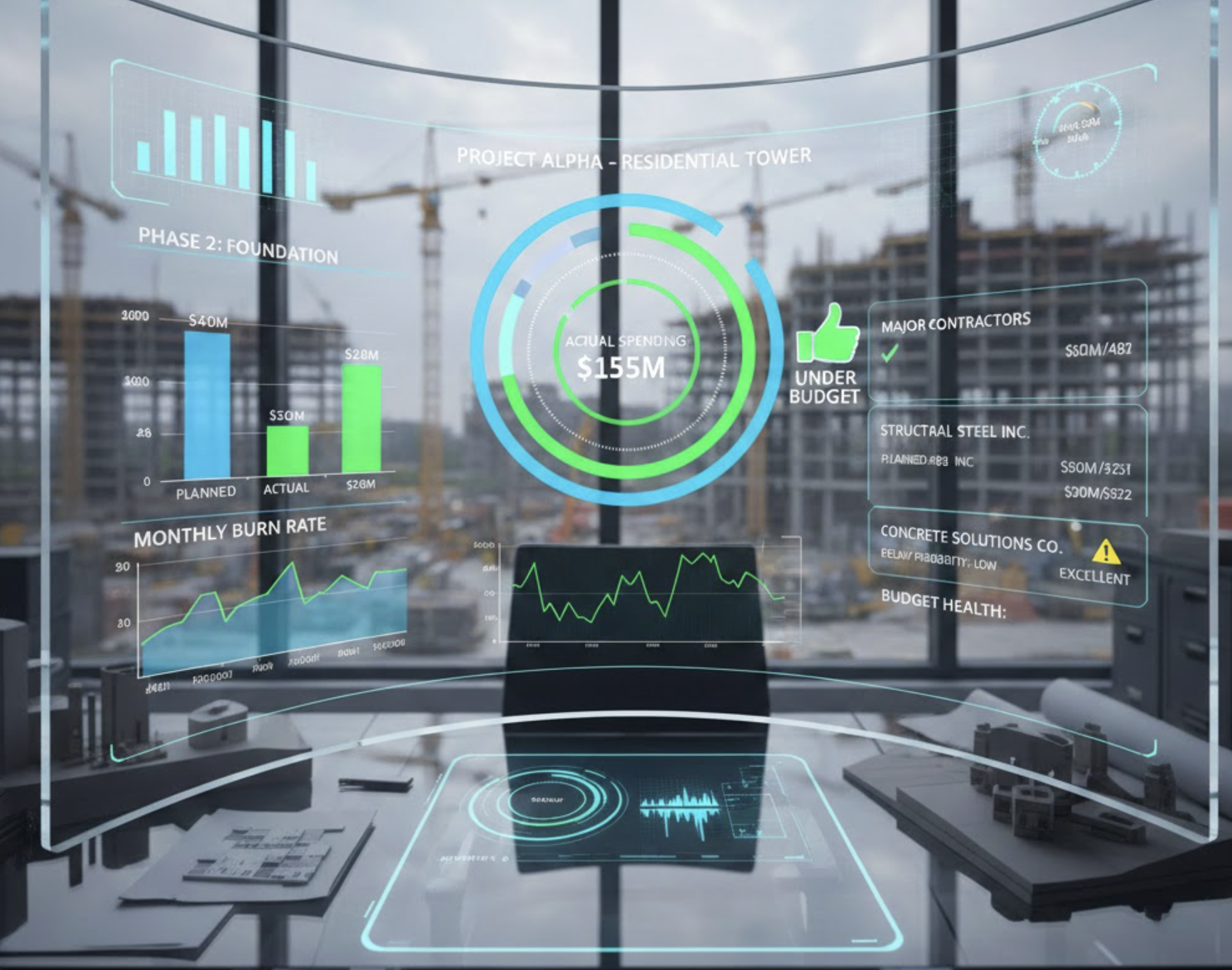The Future of Construction Procurement: AI Agents, Automation, and Voice Reminders
The construction industry is evolving rapidly, driven by advancements in technology, especially in procurement processes. As these changes take root, construction project management software increasingly harnesses the power of AI agents and automation. This blog will highlight how these innovations transform procurement workflows, improve efficiency, and reduce risks.
1. Key Concepts and Trends
AI Agents in Procurement
AI agents are intelligent, autonomous digital systems designed to manage complex procurement workflows. Unlike simple automation, they can perform logic-driven, contextual actions that enhance decision-making. In the construction sector, AI agents could autonomously manage procurement processes, including supplier communications, contract monitoring, spend analysis, and risk management. Such capabilities enable faster, more strategic decision-making, adapting continuously to organizational needs and external changes.
Automation in Construction Procurement
Automation significantly transforms routine procurement tasks, minimizing manual touchpoints and reducing errors. Automated systems can streamline purchase request approvals, assemble bid packages quickly, and even forecast future material needs. As AI-driven software takes charge of contract reviews, compliance checks, and renewal tracking, the reliance on manual processes diminishes, resulting in a more efficient procurement cycle.
Voice Reminders and Conversational AI
Simple voice-enabled technologies enhance procurement processes through real-time alerts for critical actions, such as upcoming deliveries or contract renewals. AI-powered interfaces enable procurement teams to query data or receive instant notifications about supply chain statuses. This dynamic access can significantly improve responsiveness and compliance across teams.
2. Relevant Industry Statistics & Benefits
Recent statistics underscore the importance of adopting AI within procurement. High-performing procurement officers are up to 18 times more likely to have fully deployed AI capabilities, directly correlating with improved efficiency and accuracy. Additionally, organizations utilizing AI agents report vastly reduced approval cycle times and enhanced contract compliance. With AI automation, organizations can operate 24/7, augmenting human capacity and allowing teams to respond swiftly to changing conditions.
AI’s potential for risk reduction cannot be overstated. By continuously monitoring internal data and external events like port strikes, teams can address potential disruptions proactively, alleviating financial surprises. The speed and cost savings combined with the reduction of human error lead to enhanced overall project execution.
3. Use Cases in Construction Procurement
Autonomous Sourcing & Purchasing
AI agents can streamline the sourcing process, managing everything from quote solicitation to negotiation and awarding contracts for standard items. This approach reduces human workload, improving efficiency and competitive pricing.
Supplier Risk & Compliance Monitoring
Automated systems can actively track supplier performance, flag contract breaches, and identify external risks, triggering predefined actions such as alternative sourcing when necessary.
Bid Package Assembly
AI-driven tools can gather disparate bid documents while ensuring that all requirements are met—speeding up the estimator’s workflow and minimizing errors.
Real-Time Spend and Supply Analysis
By continuously analyzing spending patterns, AI enables organizations to identify potential consolidation or alternative sourcing opportunities within fluctuating market conditions.
Document Management & Alerts
Automation can manage timely tracking, verification, and retrieval of critical procurement documents, reducing risks of delays and ensuring compliance with regulations.
Conversational Procurement
AI-powered assistants can provide on-demand responses and updates via voice or chat interfaces, streamlining workflows and eliminating information bottlenecks within teams.
4. Best Practices for Leveraging AI and Automation
To successfully integrate AI and automation into procurement workflows, best practices should be established:
- Human Oversight: Even with AI’s capabilities, human review for critical legal and contractual decisions is essential to cover nuances that algorithms might overlook.
- Integrated Platforms: Centralized systems can reduce data errors; seamless integrations between various systems can further enhance automation effectiveness.
- Proactive Data Utilization: Predictive analytics serve as a powerful tool for demand forecasting and risk assessments, empowering procurement teams to act before issues arise.
- Continuous Learning & Adaptation: AI systems should incorporate feedback loops to refine decision-making rules based on previous outcomes and evolving external conditions.
- User Training & Change Management: Training on new tools and workflow processes is crucial, ensuring that procurement teams are equipped to maximize the capabilities of AI and automation.
5. Emerging Innovations
As the landscape of construction procurement evolves, several innovations stand out:
- Agentic AI: The next generation of AI agents can reason, plan, and autonomously execute procurement strategies, continuously learning from both internal and external datasets.
- Voice-Activated Procurement: Voice AI is advancing beyond simple reminders, enabling procurement teams to place orders or negotiate via natural speech.
- Predictive Alerts: AI systems will likely proactively inform users of upcoming risks or opportunities without requiring user prompts.
- Self-Healing Processes: Advanced AI agents will autonomously identify and rectify workflow bottlenecks or errors, enhancing overall efficiency in procurement.
6. How Zepth Empowers AI-Driven Construction Procurement
Zepth serves as a powerful ally in the transition toward AI-driven procurement:
- Centralized Procurement Platform: Zepth unifies procurement management, contract oversight, and bid documentation, minimizing data silos and ensuring accuracy throughout the project lifecycle. To learn more about Zepth’s procurement management features, visit here.
- Integrated AI & Automation: Providing tools for automated workflows, supplier management, and document tracking allows procurement teams to fully leverage AI while maintaining oversight. For more information about Zepth automation, check this link.
- Real-Time Alerts and Reminders: Zepth can deliver smart notifications regarding contract renewals and compliance requirements, ensuring stakeholders remain well-informed.
- Data-Driven Insights: Zepth’s advanced analytics help teams analyze spend and monitor supplier risks, supporting informed procurement strategies.
- Voice and Conversational Interfaces: Zepth’s roadmap incorporates innovative voice AI technologies, aiming to enhance user interactions and encourage greater efficiency.
Important Considerations
Despite these advancements, it’s essential to recognize that AI won’t replace skilled procurement professionals. Instead, it serves as a force multiplier, freeing human resources for higher-level strategic work. Furthermore, data accuracy and integration are crucial to AI effectiveness—high-quality data inputs amplify the benefits that AI brings to procurement processes. Overall, effective change management and user training will remain key to harnessing the full potential of AI and automation in construction procurement.




